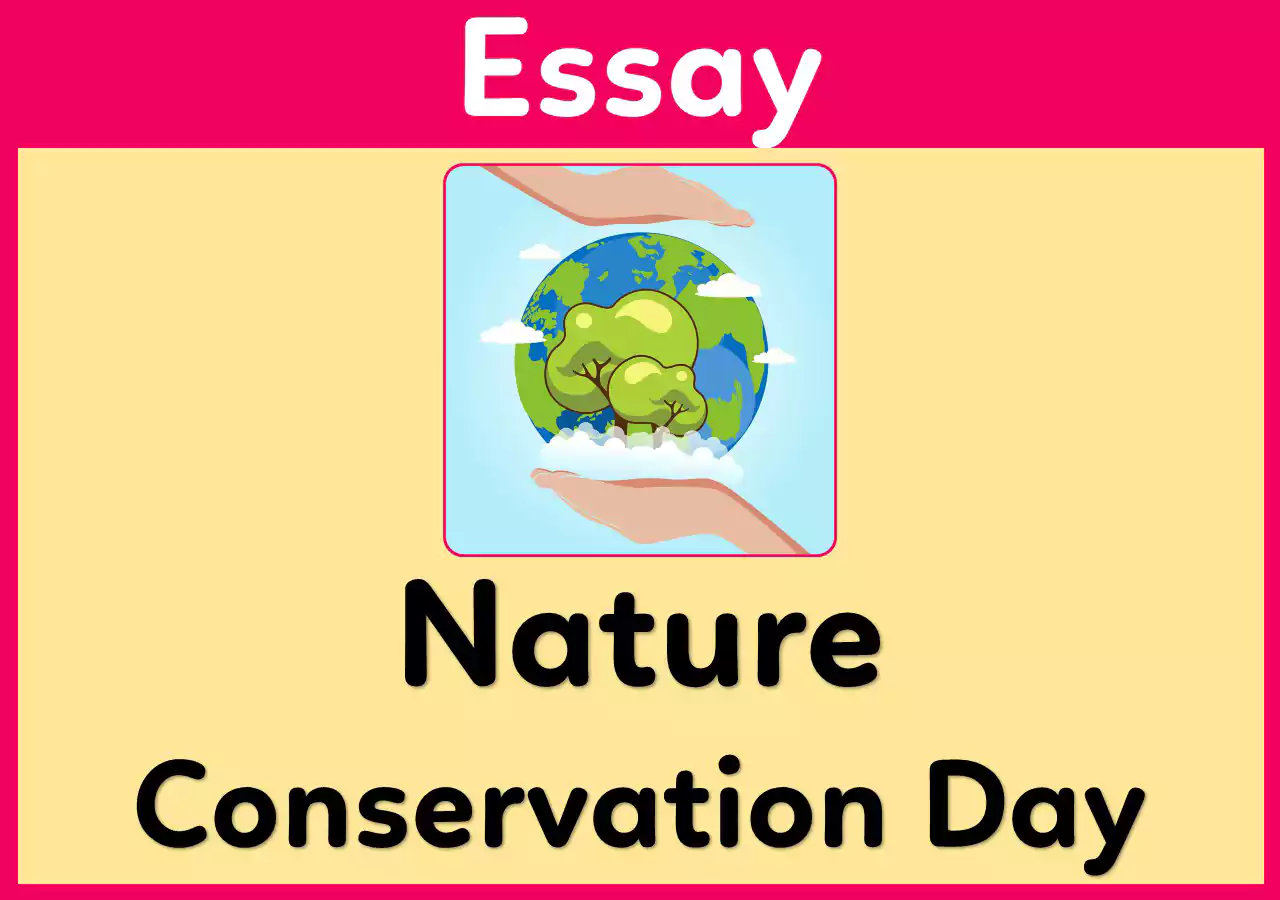Today, In this article we are going to write essay on world nature conservation day in English in 600 words. This article is about world nature conservation day.
This post can help the school students who are looking “world nature conservation day par nibandh English mein”. We briefing about “world nature conservation day in the English” which is very useful for student.
This essay on “world nature conservation day” is generally useful for class 7, class 8, class 9 and 10.
[ad1]Table of Content

Simple essay on world nature conservation day in English
Introduction
Nature, with its diverse ecosystems and rich biodiversity, is the foundation of life on Earth. However, human activities have significantly impacted the delicate balance of nature, leading to loss of habitat, extinction of species, and disruption of ecological processes. To secure a sustainable future for our planet, nature conservation becomes a paramount responsibility. This essay explores the importance of nature conservation and outlines various strategies and approaches that can be employed to protect and preserve the Earth’s vital ecosystems.
[ad2]
Understanding the Significance of Nature Conservation
- The Intrinsic Value of Nature:
Nature possesses inherent worth and beauty beyond its utilitarian value. The diverse flora and fauna on our planet contribute to the richness of life and deserve protection in their own right. Preserving nature is an ethical imperative that acknowledges the right of all living beings to exist and thrive. - Ecosystem Services and Human Dependence:
Nature provides various ecosystem services essential for human well-being, such as clean air, water, fertile soil, and climate regulation. Conserving nature is, therefore, crucial to maintaining the balance necessary for our own survival and the survival of future generations. - Biodiversity and Ecological Stability:
Biodiversity acts as a stabilizing force in ecosystems. A variety of species within an ecosystem ensures resilience and adaptability, making it less susceptible to disturbances and environmental changes.
[ad3]
Major Threats to Nature and Ecosystems
- Habitat Destruction:
The conversion of natural habitats into urban areas, agriculture, and industrial zones has led to the destruction of critical ecosystems, causing the displacement and extinction of numerous plant and animal species. - Pollution:
Pollution from various sources, including industrial activities, agriculture, and waste disposal, contaminates air, water bodies, and soil, leading to adverse effects on both wildlife and human health. - Climate Change:
The emission of greenhouse gases, primarily through human activities, has led to global climate change, impacting weather patterns, sea levels, and ecosystems, resulting in habitat loss and species endangerment. - Overexploitation:
Unsustainable extraction of natural resources, overfishing, and illegal hunting threaten various species and disrupt ecological balance.
Strategies for Nature Conservation
- Protected Areas and Wildlife Reserves:
Establishing and maintaining protected areas and wildlife reserves are essential strategies to safeguard critical habitats and conserve biodiversity. These areas offer safe havens for endangered species to thrive without human interference. - Sustainable Land Use Practices:
Promoting sustainable agriculture and land use practices, such as agroforestry and organic farming, helps reduce habitat destruction and minimize negative impacts on ecosystems. - Conservation Education and Awareness:
Raising awareness about the importance of nature conservation is vital to inspire collective action. Education initiatives can foster a deeper understanding of ecological interconnections and the consequences of human actions on nature. - Legal Framework and Policy Support:
Strong environmental laws and policies are necessary to regulate and prevent harmful activities that threaten nature. Governments and international organizations play a pivotal role in creating and enforcing such regulations. - Research and Technology:
Investing in scientific research and technological advancements can help monitor biodiversity, assess threats, and develop innovative solutions for conservation challenges.
Engaging the Global Community
- International Cooperation:
Nature conservation is a global challenge that requires collaborative efforts from all countries. International treaties, agreements, and conventions can facilitate the exchange of knowledge, resources, and best practices. - Involving Indigenous Communities:
Indigenous communities often possess traditional knowledge and practices that promote sustainable coexistence with nature. Engaging and respecting their perspectives can enhance conservation efforts and protect valuable ecosystems. - Corporate Social Responsibility:
Private sector involvement is crucial in mitigating environmental impacts. Encouraging businesses to adopt eco-friendly practices and support conservation initiatives can make a significant difference.
Conclusion
Nature conservation is not a choice but an urgent necessity for the survival and well-being of all life on Earth. By understanding the value of nature, recognizing the threats it faces, implementing effective conservation strategies, and fostering global cooperation, we can collectively work towards preserving the Earth’s vital ecosystems. Only through a concerted effort can we ensure a sustainable and prosperous future for both humans and the incredible biodiversity that enriches our planet.
[ad4]
You May Also Like
FAQ
Q. Why is nature conservation important?
Ans: Nature conservation is important to preserve biodiversity, and ecosystem services, and ensure a sustainable future for all life on Earth.
Q. What are the major threats to nature and ecosystems?
Ans: Major threats to nature include habitat destruction, pollution, climate change, and overexploitation of resources.
Q. What strategies can be employed for nature conservation?
Ans: Strategies for nature conservation include protected areas, sustainable land use, conservation education, legal support, research, and technology.
Q. How can the global community contribute to nature conservation?
Ans: The global community can contribute through international cooperation, involvement of indigenous communities, and corporate social responsibility.
Q. How can individuals contribute to nature conservation?
Ans: Individuals can contribute to nature conservation by adopting eco-friendly practices, raising awareness, and supporting conservation organizations.
Q. What role does biodiversity play in nature conservation?
Ans: Biodiversity is essential for ecological stability and resilience in ecosystems, making it a key component of successful nature conservation efforts.
We hope you like this post about essay on world nature conservation day in English. We are very glad to help the students to do their homework in an effective way. This was a “world nature conservation day ka essay English mein”. This type of questions generally asked the students in their schools to write essay on world nature conservation day.